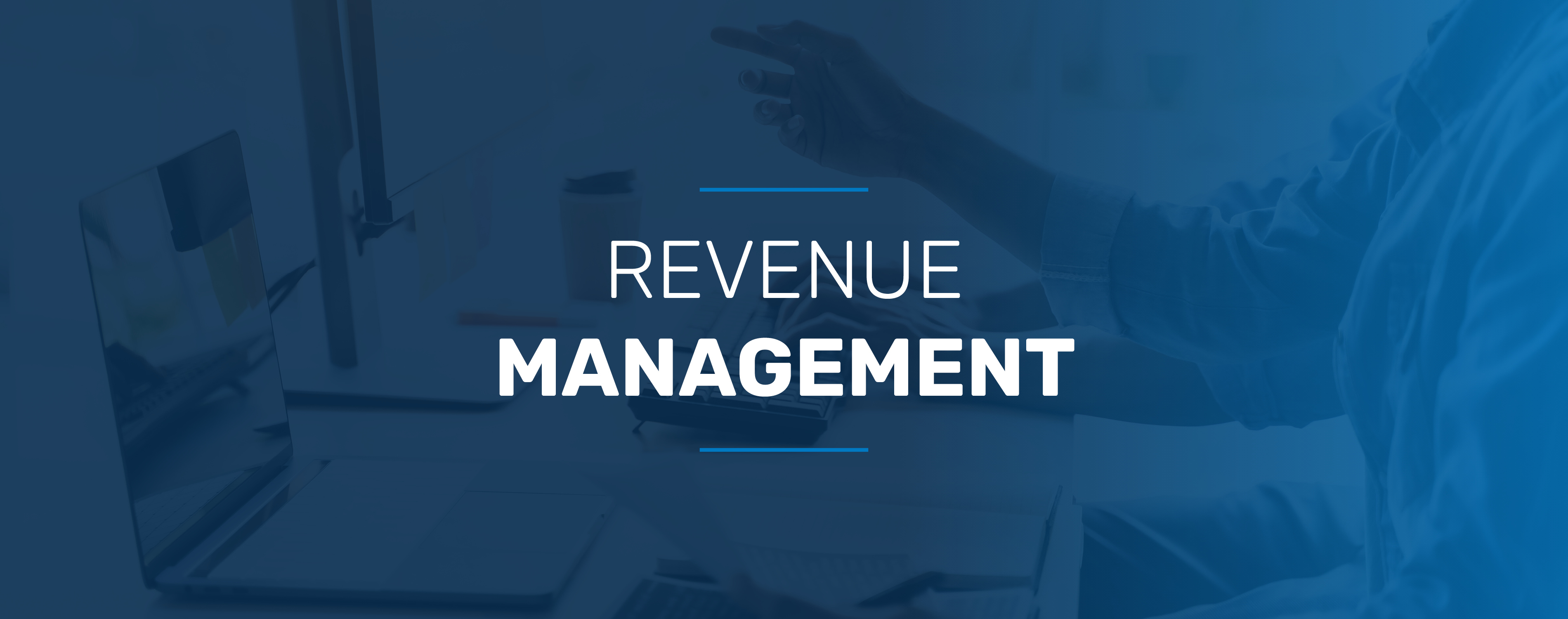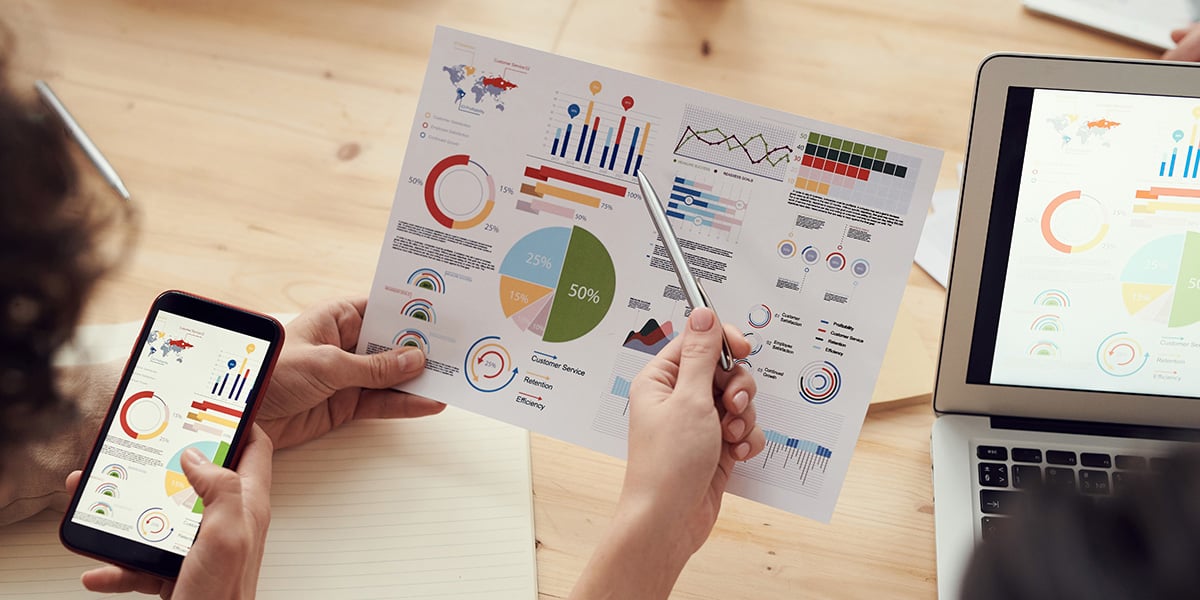
Daniela
Marketing Manager
March 2, 2021
Revenue Management
Revenue Management helps - even in times of crisis
It is already well known that dynamic pricing has become one of the essential tools in the hotel industry. But which impact does the use of a revenue management system have in times of crisis? The stunning result: In summer 2020, hotels with a Revenue Management Software performed more than 10 percentage points better than those without such a system*.

2020 started record-breaking. But it was quickly slowed down by Covid-19. Since then, especially the hotel industry has been struggling with the effects of the pandemic.
Nevertheless, many leisure hotels were able to achieve a "positive" summer. Particularly in the alpine and lake regions, the desired recovery came back quickly in summer 2020. But how does a Revenue Management Software help in this case? Does it make a difference at all to use such a system in times of crisis? Or did the use of an RMS, such as RateBoard in the summer of 2020 even have negative effects?
We at RateBoard have also been asking ourselves these questions. We at RateBoard have also been asking ourselves these and other questions. Therefore, our Data Science Team headed by Dr. Martin Schwarz took another look at the summer of 2020 and came up with some surprising results.
Due to the great need for flexibility, Revenue Management is currently gaining enormous importance in the leisure hotel industry. RateBoard offers an intelligent Revenue Management System, especially for the individual hotel industry, that calculates scientific price recommendations and thus greatly simplifies price maintenance. (Read more)
The large integration portfolio of more than 50 interfaces to various PMS and channel managers allows RateBoard to directly exchange data with the respective systems. This enables the possibility to generate anonymous evaluations of the past. To evaluate the performance of hotels without using RateBoard ( summer 2020), historical data of RateBoard customers with connection after October 2020 has been used.
The Study
About 250 hotels from Germany, Austria and South Tyrol have been analyzed. The sample was divided into two categories:
- Category 1: RateBoard existing customers (hotels that were already using RateBoard in summer 2020).
- Category 2: Non-RateBoard customers (hotels that were not yet using RateBoard in the summer of 2020 and did start using it after October 2020).
Based on these data, the following question should be answered:
"When comparing summer 2020 to 2019, is there an apparent difference between the performance of hotels using the Revenue Management Software RateBoard and non-RateBoard customers?"
During the period from July 2020 to the end of August 2020, the key performance indicators ADR (Average Daily Rate), OCC (Occupancy) and RevPAR (Revenue per available Room) were analyzed.
The result briefly summarized:
On average, existing RateBoard customers performed about 10 percentage points better than non-RateBoard customers.*
The results in detail
OCC (Occupancy)
As expected, throughout the entire summer, occupancy was never able to reach the level of the previous year. In principle, the numbers of existing and non-customers are quite similar in this case.
However, at the beginning of the summer season (July 2020), existing customers were already better booked than non-customers. On average, existing customers reported a minus of 9.8 percentage points, and non-customers a minus of 13.6 percentage points.
If we look only at the top month of August, the negative occupancy rate is reduced in both categories. Here, existing customers also performed better, with an average of 4 percentage points.
ADR (Average Daily Rate)
The metric Occupancy on its own is not very meaningful. For example, an occupancy rate of 100% does not necessarily mean that the hotel is performing at its best. Here it is necessary to find the sweet spot between occupancy and price on the demand function.
After waiting for a long time before the hotels reopened, estimating the general travel demand for the summer of 2020 turned out to be very difficult. Many experts feared an enormous discounting of room rates in order to increase the occupancy rate of the hotels. But be careful: According to our research, increasing occupancy by lowering prices only helps to a very limited extent. A precise investigation of the willingness to pay or the price elasticity of the own target group is absolutely necessary in this case. In the worst case, wrong and not well-considered price reductions will lead to negative trends and to price dumping. (Learn more about price dumping)
Especially the average rate shows drastic differences between the two analysed categories within the evaluations.
For all hotels that were already working with RateBoard in summer 2020, there is no need to worry about the potential risk of price dumping. On average, existing RateBoard customers actually increased their ADR by 4.79% in summer 2020 compared to 2019. However, non-RateBoard customers just missed reaching the previous year's level. A decrease of 1.22% was recorded from this category.
In summary, this means a 6 percentage points better result for hotels using the Revenue Management Software RateBoard than for those without the software.
If the month of August is considered separately, the effect above is strengthened. Existing customers were able to increase ADR by 5.61% compared to 2019, while the average price for other hotels decreased by 3.27%. This corresponds to a difference of almost 9 percentage points.
RevPAR (Revenue per available room)
The final result of ADR and occupancy is the KPI Revenue per Available Room (RevPAR). Simplified, this KPI describes the revenue per available room and thus enables the comparison of hotels of different sizes.
By increasing ADR, RateBoard's existing customers were able to partially compensate the lower occupancy through the price.
In numbers, this means an average RevPAR of -10.08% compared to 2019. On the other hand, hotels in category 2 showed a lower occupancy as well as a lower ADR. This resulted in an average RevPAR of - 20.52%.
In August, existing customers actually nearly managed to return to their last year's levels, with a RevPAR minus of 3.15%. Non-RateBoard customers, on the other hand, were 13 percentage points behind and suffered a RevPAR loss of 16.33% year-on-year.
In summary, hotels that used RateBoard revenue management software in the summer of 2020 recorded a 10 percentage point higher RevPar than non-RateBoard customers.
You want to learn more about RateBoard? Then contact us now.
What is the reason for this?
Complexity of planning
The entire market is behaving increasingly unpredictable. This leads to a constantly more complex prediction of booking cycles. Especially after the lockdown in 2020, no one was able to predict how exactly demand would develop in the coming summer. Especially in such situations, it is an advantage to be able to rely on an intelligent system and a competent partner.
Keeping an eye on the market
A large amount of information has to be monitored in order to make an accurate estimation of the current market situation. In addition to the company's own pickup statistics and the current forecast, external factors such as general market demand or competitor prices are also crucial factors. The use of different systems or even the manual aggregation of these data is not only time-consuming, but also hardly manageable by hand. In this case, RateBoard bundles the necessary information in one central location so that the status quo can be immediately assessed.
Speed & Agility
In uncertain times, fast reaction plays an essential role. If the demand changes contrary to one's own plans, it is necessary to act immediately! Further border openings, lower travel warnings or other regulations, every day new changes can take place, therefore it is absolutely necessary to adjust the hotel's own prices both quickly and regularly.
Personal support
We believe that especially in difficult times a competent partner is a very valuable support. This is the reason why our revenue managers are always there to provide advice and support to all our RateBoard customers. Especially during the pandemic, our experts provide regular support in order to optimally align the hotel's own pricing strategy. This is also one of the reasons why the ADR level of our existing customers did not drop below zero but, on the contrary, could even be increased.
Data based decisions
Many hoteliers still make their price decision instinctively, contrary to all recommendations. In the summer of 2020, as well as in the coming season, this can lead to fatal results. If, on the one hand, the price is so low that full occupancy is already recorded much too early, this can no longer be corrected for the specific period. If, on the other hand, the price is much too high, the hotel will simply remain empty.
This shows that purely intuitive decisions can lead to lucky wins, but they are definitely not comparable to a well thought-out pricing strategy. Here you can also learn why you should never use Excel for revenue management.
Algorithm
RateBoard's algorithm is responsible for reliable price recommendations. Based on a large number of data, the intelligent calculation generates new forecasts for each individual arrival day on a daily basis. In the rate calendar, these price suggestions are clearly displayed for the respective days. The hotelier decides for himself whether these recommendations are to be accepted or, if necessary, adjusted. With the help of summarized analyses, the hotel's performance, current market demand and competitor performance can be seen at a glance. Together with RateBoard's experts, this provides the ideal base for making optimal pricing decisions, even in uncertain times.
Additional analyses
Based on the analyses, category 1 was further divided into other subgroups. Category 1, "RateBoard existing customers," was subdivided as follows:
- Category 1a: Long-time RateBoard customers (hotels that have been working with RateBoard since July 2019 or longer)
- Category 1b: New RateBoard customers (hotels that started working with RateBoard between 01.2020 and 06.2020)
- Category 2: As already existing - non-RateBoard customers
The charts show that the "RateBoard new customers" category was able to record the best performance in summer 2020. One reason for this is that the new implementation of Revenue Management has an enormous potential for optimization, and summer 2019 has not yet been optimally priced in these hotels. Due to the increased flexibility, the business can react much faster to changing circumstances and thus adjust the rates both downwards and upwards depending on the situation. Nevertheless, long-time RateBoard customers still managed to achieve a significantly better result than non-customers.
Do you also want to work with dynamic prices? Then find out which requirements your hotel should fulfill. Arrange your personal online appointment now, we are happy to assist you.
* Performance = RevPAR 2020 compared to the same period in 2019.
SHARE

Subscribe To Our Newsletter
Sign up now and receive monthly hotel and revenue management insights.

